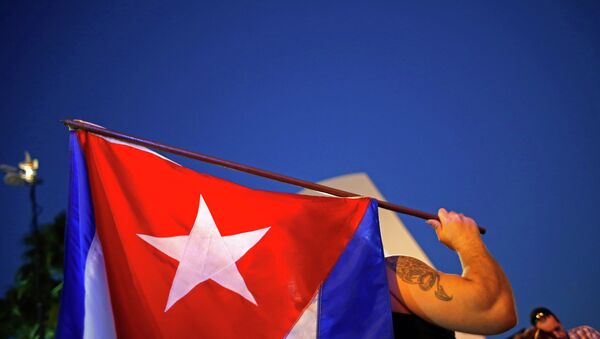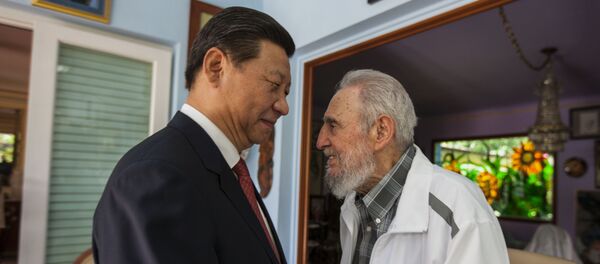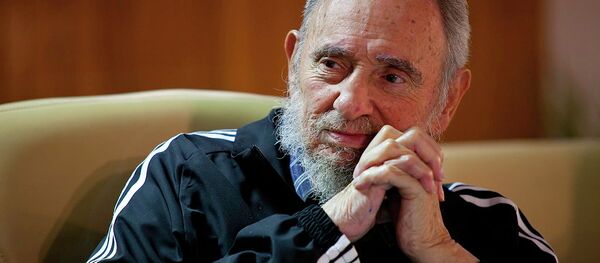While in power, Castro tried to maintain close relations with developing countries around the world, including Vietnam, which had obtained independence from France and later from the United States. Havana's support in hard times for Hanoi had left mostly positive impression about the policy of the Cuban president among the Vietnamese.
Vietnamese military expert Col. Le The Mau told Sputnik that Casro had a special stance on the relations with Vietnam and the two nations had much in common on a wide range of issues.
"Fidel Castro had always expressed deep sympathy toward Vietnam. Obviously it has happened, because Cuba and Vietnam are examples of peaceful, progressive countries," the expert said, adding that both countries had much in common because they had the same ideology and enemy, which was the "US imperialism."
According to Le, Castro had repeatedly stated that the Vietnamese nation had always been the friend of the Cubans and believed that "the spirit of solidarity between our nations would continue to strengthen and to develop."
Nguyen Manh Ha from Vietnam's Institute of History told Sputnik that Fidel Castro had contributed to the fact that Havana provided the independent Vietnam with support and received assistance from the Vietnamese specialists at a later time.
"The specialists from Cuba had worked in many sectors of the Vietnamese economy, but mostly in the road construction, sharing their experience with Vietnamese workers, despite the fact that Cuba had faced difficulties itself," Nguyen said.
Professor Vladimir Kolotov from St. Petersburg State University's Faculty of Asian and African Studies said that Cuba and Vietnam faced a long history of relations and the Vietnamese experience could be very useful for the Caribbean nation.
"Close ties with Vietnam, studying of its experience could allow it to reach lifting of the US economic embargo by diplomatic means, to achieve economic integration and development of economy, while preserving the national independence and the gains of the revolution," Kolotov told Sputnik.
The expert added that Hanoi could consult Havana in Cuba's efforts to develop economic relations with other countries.
Grigory Lokshin from the Institute of Far Eastern Studies (IFES) of the Russian Academy of Sciences told Sputnik that Cuba had always seen close relations with Vietnam that had a very friendly nature.
"The Cuban side had always actively participated in the preparation of any major events related to Vietnam… We (I mean the three sides, namely Russians, Vietnamese and Cubans) have established a relations of true friendship and had a common vision of different problems," Lokshin, who had taken part in a number of events with the participation of the delegations from developing countries, particularly Cuba and Vietnam, stressed.
The two nations have established diplomatic relations in 1960. The bilateral ties between Hanoi and Havana are based on a number of issues, including ideological and economic ones.






